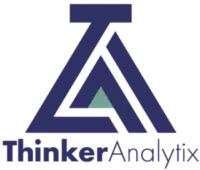Mapping Research
Argument Mapping Research
- The visual representation of arguments reduces cognitive load and frees up working memory when analyzing arguments.
- The process of identifying and exposing the structure of written arguments – including underlying assumptions and intermediate conclusions – demands precision, rigor, and intellectual charity.
- Mapping naturally provides abundant opportunities for deliberate practice with targeted feedback – elements which are essential for developing any complex skill.
- The activity of mapping prompts deeper and richer student interactions than a standard classroom discussion.
“Critical thinking classes … are crucial to a democratic society: being able to distinguish persuasive arguments from nonpersuasive arguments, to evaluate claims critically and fairly, and to recognize forms of persuasion not grounded in reason…Given that, as van Gelder and others have shown, “one semester of instruction based on argument mapping can yield reasoning skill gains of the same magnitude as would normally be expected to occur over an entire undergraduate education,” and given the effectiveness of teaching mapping through the step-by-step method, it is not surprising that teaching in this way has reminded us of how thrilling it is, as instructors, to witness moments of learning, to see our students move from confusion and inability to confidence and fluency.”

